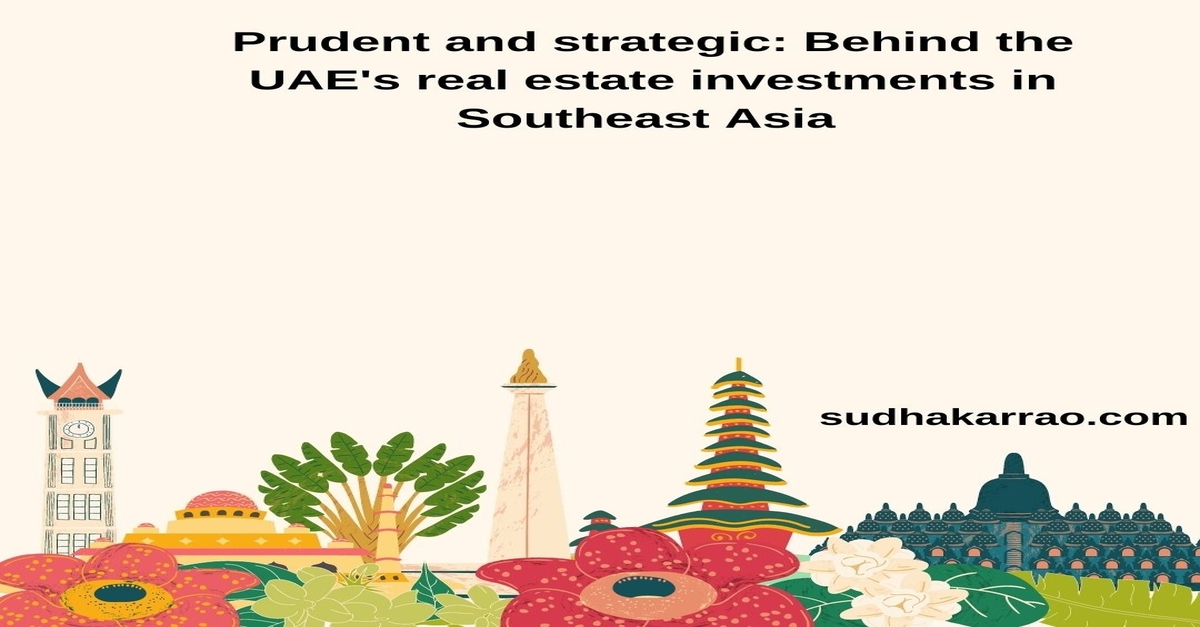Prudent and strategic: Behind the UAE’s real estate investments in Southeast Asia
The UAE-based Equitativa – which manages the largest Shari’ah-compliant REIT in the world, Emirates REIT – recently launched a $500-million REIT(1) in Indonesia. Equitativa is hoping to acquire retail and hospitality properties, among other real estate assets, in the Southeast Asian nation. This announcement comes only a few months after the UAE pledged to invest an astounding $10 billion in Indonesia’s sovereign wealth fund(2), Indonesia Investment Authority (INA), which is expected to deploy capital into existing and in-the-pipeline projects. From Indonesia’s standpoint, this marks the biggest and the first investment commitment to INA since its launch in February. So, naturally, the obvious question is: Why is the UAE betting heavily on Indonesia and Southeast Asia at large?
For starters, Indonesia has strong aggregate demand, thanks to its fourth-largest population in the world. The increase in the middle class and per-household annual disposable income also spells economic opportunities in asset classes like real estate, which has strong correlations with demographics. The largest economy in Southeast Asia, Indonesia has charted impressive economic growth since the Asian Financial Crisis of the late 90s. And lately, following China’s coal crunch, Indonesia has emerged as a primary coal supplier in the region. These are among the tell-tale signs wooing both sovereign and private businesses into Indonesia.
Yet, Indonesia, and Southeast Asian economies in general, have largely underserved real estate markets. Recurrent natural disasters and population explosions in urban centres have further stalled developments, while the devastating effects of the pandemic continue to linger. So, policymakers, in pursuit of economic revival, are creating a favourable ecosystem for foreign investors. And the UAE, which has strong cultural relativism with Southeast Asia, particularly Indonesia, is among the first to capitalize on these opportunities as part of its own diversification policy of keeping all its eggs in different baskets. But it would be a misrepresentation to deem these developments as new.
A bilateral relationship forged over decades
The UAE established diplomatic relations with Malaysia in 1975, at a time when such MoUs were largely confined to regional economies. This was followed by strong bilateral relations with Thailand and Indonesia. At the time, the trade deals were largely based on the food-for-oil principle, because Southeast Asia’s agricultural productivity complemented the UAE’s food security. Over the years, as the UAE expanded its focus to different economic sectors, the trade deals evolved as well. The Free-Trade Agreement (FTA) with Singapore in 2015 is among the notable developments to this effect. The FTA has since enabled trade in industries as diverse as e-commerce, FMCG, and electronics.
Today, it is serving as a bedrock for UAE’s growth strategies. The Abu Dhabi Investment Authority’s (ADIA) $500-million acquisition(3) of a minority interest in EdgePoint Infrastructure, a Singapore-based telecommunications venture which is aggressively expanding in Southeast Asia, is a good case in point. In fact, the Southeast nations have displayed a sustained appetite for UAE-based products/services throughout — even amid the pandemic. Dubai Chamber members’ certificates of origin (COOs) in the Southeast Asian markets, for example, reached $177.6 million in April 2020(4), with overall activity in the region registering a 34% year-on-year growth rate.
Meanwhile, both the UAE and Indonesia have emerged as important stakeholders in the global Islamic finance industry. The demand for Shari’ah-compliant financial instruments has paved the way for innovative practices like sukuk bonds. The entry of Islamic REIT-focused Equitativa, too, plays into this notion. Such real estate-centric programs are fit-for-purpose in Indonesia, where nearly 87% of the population are adherents of Islam. From UAE’s part, the move to invest in Indonesia is both strategic and prudent, in line with the imminent economic resurgence and real estate activities in Southeast Asia.
- https://gulfnews.com/business/property/uae-property-fund-owner-equitativa-launches-500m-reit-in-indonesia-1.1633331847429
- https://www.reuters.com/world/middle-east/uae-invest-10-bln-indonesias-sovereign-wealth-fund-2021-03-23/
- https://irei.com/news/adia-acquires-minority-stake-edgepoint-infrastructure/




